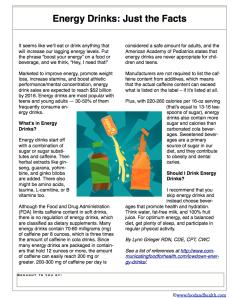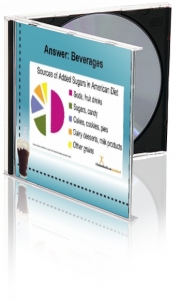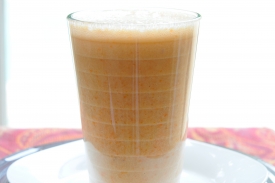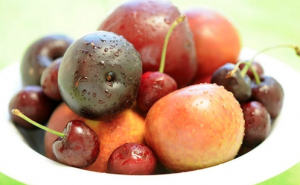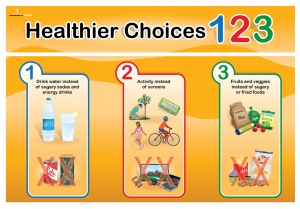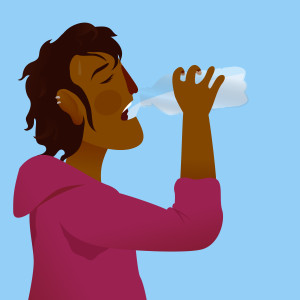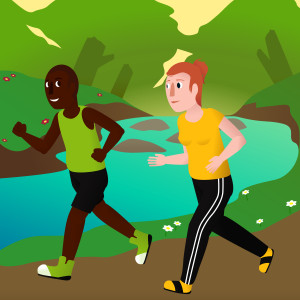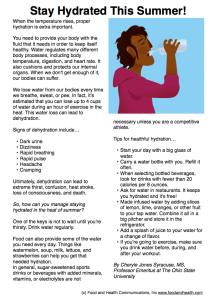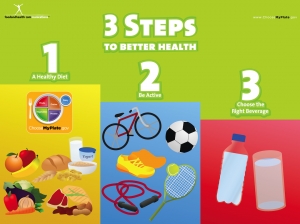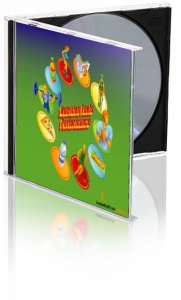It seems like we’ll eat or drink anything that will increase our lagging energy levels. Put the phrase “boost your energy” on a food or beverage, and we think, “Hey, I need that!”
Marketed to improve energy, promote weight loss, increase stamina, and boost athletic performance/mental concentration, energy drink sales are expected to reach $52 billion by 2016. Energy drinks are most popular with teens and young adults — 30-50% of them frequently consume energy drinks.
What’s in Energy Drinks?
Energy drinks start off with a combination of sugar or sugar substitutes and caffeine. Then herbal extracts like ginseng, guarana, yohimbine, and ginko biloba are added. There also might be amino acids, taurine, L-carnitine, or B vitamins too.
Although the Food and Drug Administration (FDA) limits caffeine content in soft drinks, there is no regulation of energy drinks, which are classified as dietary supplements. Many energy drinks contain 70-80 milligrams (mg) of caffeine per 8 ounces, which is three times the amount of caffeine in cola drinks. Since many energy drinks are packaged in containers that hold 12 ounces or more, the amount of caffeine can easily reach 200 mg or greater. 200-300 mg of caffeine per day is considered a safe amount for adults, and the American Academy of Pediatrics states that energy drinks are never appropriate for children and teens.
Manufacturers are not required to list the caffeine content from additives, which means that the actual caffeine content can exceed what is listed on the label – if it’s listed at all.
Plus, with 220-260 calories per 16-oz serving (that’s equal to 13-16 teaspoons of sugar), energy drinks also contain more sugar and calories than carbonated cola beverages. Sweetened beverages are a primary source of sugar in our diet, and they contribute to obesity and dental caries.
Should I Drink Energy Drinks?
I recommend that you skip energy drinks and instead choose beverages that promote health and hydration. Think water, fat-free milk, and 100% fruit juice. For optimum energy, eat a balanced diet, get plenty of sleep, and participate in regular physical activity.
By Lynn Grieger RDN, CDE, CPT, CWC
References:
- The History of Energy Drinks: A Look Back. Wall Street Insanity. Samantha Lile. 5-6-2013. http://wallstreetinsanity.com/the-history-of-energy-drinks-a-look-back/ Accessed 5-21-14.
- Caffeine in the Diet. MedLine Plus. http://www.nlm.nih.gov/medlineplus/ency/article/002445.htm Updated 4-20-2013. Accessed 5-21-14.
- Proposed Actions for the US Food and Drug Administration to Implement to Minimize Adverse Effects Associated With Energy Drink Consumption. Thorlton J, Colby DA, Devine P. Am J Public Health. 2014 May 15.
- Sports & Energy Drinks: Answers for Fitness Professionals. Jerry J. Mayo, Ph.D., R.D. and Len Kravitz, Ph.D. http://www.unm.edu/~lkravitz/Article%20folder/sportsdrinksUNM.html
- Health Effects of Energy Drinks on Children, Adolescents, and Young Adults. Seifert, Schaechter, Hershorin, Lipshultz. Pediatrics. Mar 2011; 127(3): 511–528.
- Clinical Report – Sports Drinks and Energy Drinks for Children and Adolescents: Are They Appropriate? Committee on Nutrition and the Council on Sports Medicine and Fitness. Pediatrics 2011 Jun;127(6):1182-9.
- Energy Drinks. The American Association of Poison Control Centers. http://www.aapcc.org/alerts/energy-drinks/ Accessed 5-21-14
Handout:
Here’s a link to the free handout. Download it anytime!
More Resources:
The Nutrition Education Store is always evolving. Check out the latest resources for beverages and health!



